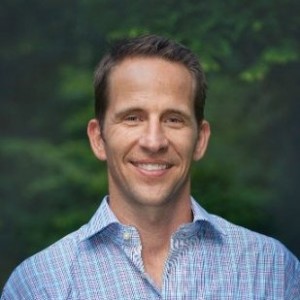
By Dave Friedman. The Carolina Panthers are off to their best start in franchise history. Watch them play on TV, and what you see even more of than Cam Newton are commercials for Draft Kings and Fan Duel. The two biggest players in the growing Daily Fantasy Sports business spent more than $200 million on commercials from Jan. 1 through Oct. 5, including a staggering $31 million during the first week of the NFL season.
Cornelius-based FantasyDraft.com may be lesser known but it is growing fast. The start-up team hopes to earn a piece of a pie—call it DFS—that is valued at more than $1 billion.
When FantasyDraft COO Stephen Krombolz and two colleagues were asked to look into starting a DFS company less than two years ago, he didn’t know much about the industry. Krombolz ran e-commerce for several businesses, and the private investment group that owned those companies expressed an interest in DFS.
“It’s definitely happened quickly,” said Krombolz. “The investment group is located here. We started the company in April, moved here in June, worked from our homes until September, and then moved into 4,600 square feet of space on West Catawba Avenue. We have 13 full-time people here, and 15 tech team members that work remotely.”
Fantasy sports are not gambling, but rather games of skill according to the Unlawful Internet Gambling Enforcement Act of 2006. Therefore, DFS is allowed in 45 states. Whereas season-long fantasy sports are typically played among groups of friends for low stakes, a lot like NCAA Tournament pools, DFS is a big business.
Traditional fantasy sports entail a draft among 10 or 12 people, each of whom pitch in $10 or $50 or $100, and one-by-one select players who comprise their team for the season. Owners can manage their roster throughout the year, and whatever team has the best stats at the end of the season wins the pool of cash.
Daily Fantasy games can have anywhere from two people to thousands in one pool. Entry fees can be a buck or two, or thousands of dollars. Managers can have similar rosters because there is no draft. Every player in the NFL, or NBA, or MLB, is assigned a salary for a particular day or week, with the best players the most expensive. Each manager fills out a roster that is based on a salary cap, fitting in the best players possible without exceeding the cap. Whatever team performs the best during the day or week the pool is running wins the majority of the money.
FantasyDraft’s rules vary slightly from the industry leaders, and it is those details that may make them attractive to the general public.
“A lot of the complaints about bigger sites are because of all of their ‘power players,’” said Krombolz. “They put in thousands of entries a day. It’s a job for them.”
By limiting entries to 20 per person in any given pool, more evenly distributing payouts among the top quartile of people in each pool, maximizing fees at 10 percent, and having more flexible lineup requirements, Krombolz thinks his company serves the average fan.
“At the end of the day this is a product that is entertaining,” said Krombolz. “You are more engaged with the sports you love when you have a team. For 99.9 percent of people this isn’t a job. It makes it more fun to watch.”
Instead of competing with big DFS companies on television, FantasyDraft is depending on a generous referral program for their customers. More than a dozen current and retired athletes have endorsed their product to get the name out.
While there is overlay initially that the company has to stomach, more guaranteed money in pots than users to fund the games, they had more than 84,000 entries in one contest during Week 8 of the NFL season.
FantasyDraft is able to combat a few of the biggest problems many DFS companies deal with. There is a perception that only pros win, questions about whether their money is safe, and concerns about employees from one DFS using inside information to win money at other sites.
“We built the company on the backs of e-commerce and customer experience, not DFS,” said Krombolz. “There are no pros on our staff. That’s not an issue. We embrace any form of regulation that comes around if it is done responsibly and is good for customers.”


Discussion
No comments yet.